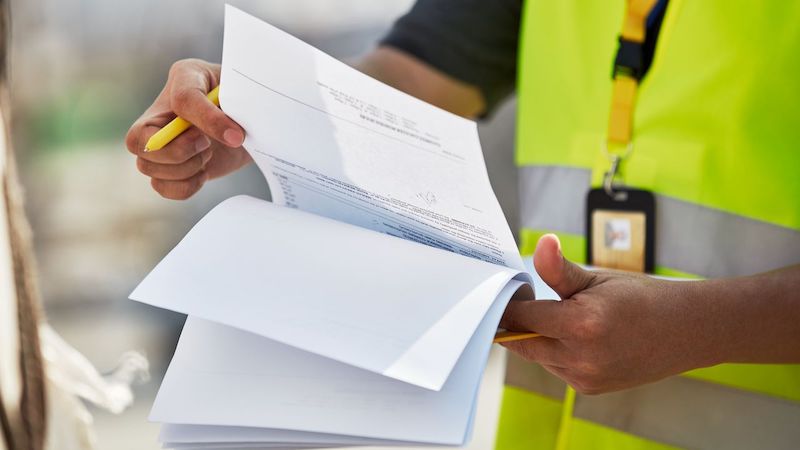Grow your business with the Discover newsletter
Logistics advice & insights straight to your inbox
Subscribe now
According to Trading Economics, exports from Singapore to Thailand were made up largely of non-oil products, machinery and transport equipment and electronics. Exports of electronics, in particular, increased to S$17081.62 million as of September 2022. Evidently, many Singapore businesses are shipping a significant number of products to Thailand. If you have parcels to ship, we’ve put together key information about Thailand import duty tax and other customs regulations to help you get your products through.
Sending parcels from Singapore to Thailand requires clearing customs in the country starting with import tariffs, also known as import duties, tariffs or import taxes. You will need a receipt of payment for Thai import tariffs and import-related taxes. From July 5th to December 31st, 2024, goods worth THB 1,500 or less that are imported into Thailand will be charged 7% Value Added Tax (VAT).
Prior to RCEP exemptions, import duties ranged from 5% to 30% and a VAT of 7%. The exact amount is determined by the Harmonised Code (HS) of your goods.
For example, a vacuum cleaner with HS Code 8508 will incur an import tax of 10% in addition to the 7% VAT, bringing the total duties and taxes to 17%. With the RCEP, certain goods will incur discounted taxation rates, so check to make sure you're paying the right tax on items shipped from Singapore to Thailand. You may start by viewing the preferential rates on the Enterprise Singapore website.
If you’re looking to save on import taxes, consider how the new Regional Comprehensive Economic Partnership (RCEP) trade agreement may benefit your organisation. Both Singapore and Thailand have ratified this trade agreement, which offers preferential trade for members, supported by lower import taxes in certain areas.
To ensure your products pass Thai customs regulations, you must understand what are restricted and prohibited goods.
Your goods should not be classified as prohibited items on the Thai customs declaration form. Prohibited goods include:
Narcotics
Fake currency
Counterfeit trademark items
Reserved or endangered animals
Pornographic materials.
These will not pass Thai customs clearance and will incur heavy penalties.
Restricted goods include:
Plants and plant parts
Live animals and carcass
Vehicle parts
Objects or artefacts relating to Buddha or Buddhism
Pharmaceutical products
Tobacco products
Alcoholic beverages
Food and cosmetics
Guns, and firearms.
As the name suggests, these goods are subject to heavy conditions for import. If you’re looking to import a restricted item, make sure it adheres to current Thai customs regulations to avoid having the parcel withheld or returned to when shipping goods to Thailand.
Having said that, if you are looking to import alcohol to Thailand, you will need to complete the form SOR2/74 to obtain a licence. A fee would be required, and you may need to pay between 5% to 60% import duties based on the type of alcohol and the Free Trade Agreement (FTA) between the corresponding countries.

To pass Thai customs regulations, you must have the necessary documents available at pick up. This differs depending on who collects the goods. They may be the consignee themselves, someone authorised by the consignee or a juristic person such as a company or limited partnership designated as the consignee. These are some of the shipping documents to prepare before you send goods from Singapore to Thailand:
Notification letter — bill of lading/air waybill
Identification card of Thai national/Passport of your foreign consignee in Thailand
Invoice
Import licence (if required)
Insurance Policy
Receipt documenting paid import duties and taxes
Quality standards documents (if required)
List of ingredients (if you are importing food items)
Other documents as requested, dependent on the nature of shipment
You may visit the Thai Customs website to understand the specific documents required upon collection of goods to avoid the unnecessary inconvenience of getting your packages withheld or returned goods.
Adhering to Thailand’s import regulations will help smoothen the shipping and customs clearance process. In addition, choosing a reliable logistics partner for the streamlined delivery of your goods and helping out with customs clearance makes the experience better.
DHL Express is a world-class international door-to-door delivery provider you can rely on when shipping from Singapore to Thailand. We offer an array of shipping options:
Our time-sensitive express shipping allows your package to arrive at a convenient time specified by the sender.
Our day-sensitive shipping is a more economical option which ensures your package arrives within a certain number of days.
For urgent shipping, our same-day delivery makes sure that your parcel gets priority door-to-door shipping within 24 hours.
Alongside these shipping options, we offer tools to improve your logistics experience. MyDHL+ makes it easy to ship online, get quotes, schedule pickups, find locations and track shipments. Sign up for our business account and join thousands of successful businesses that have DHL Express as their preferred logistics provider.